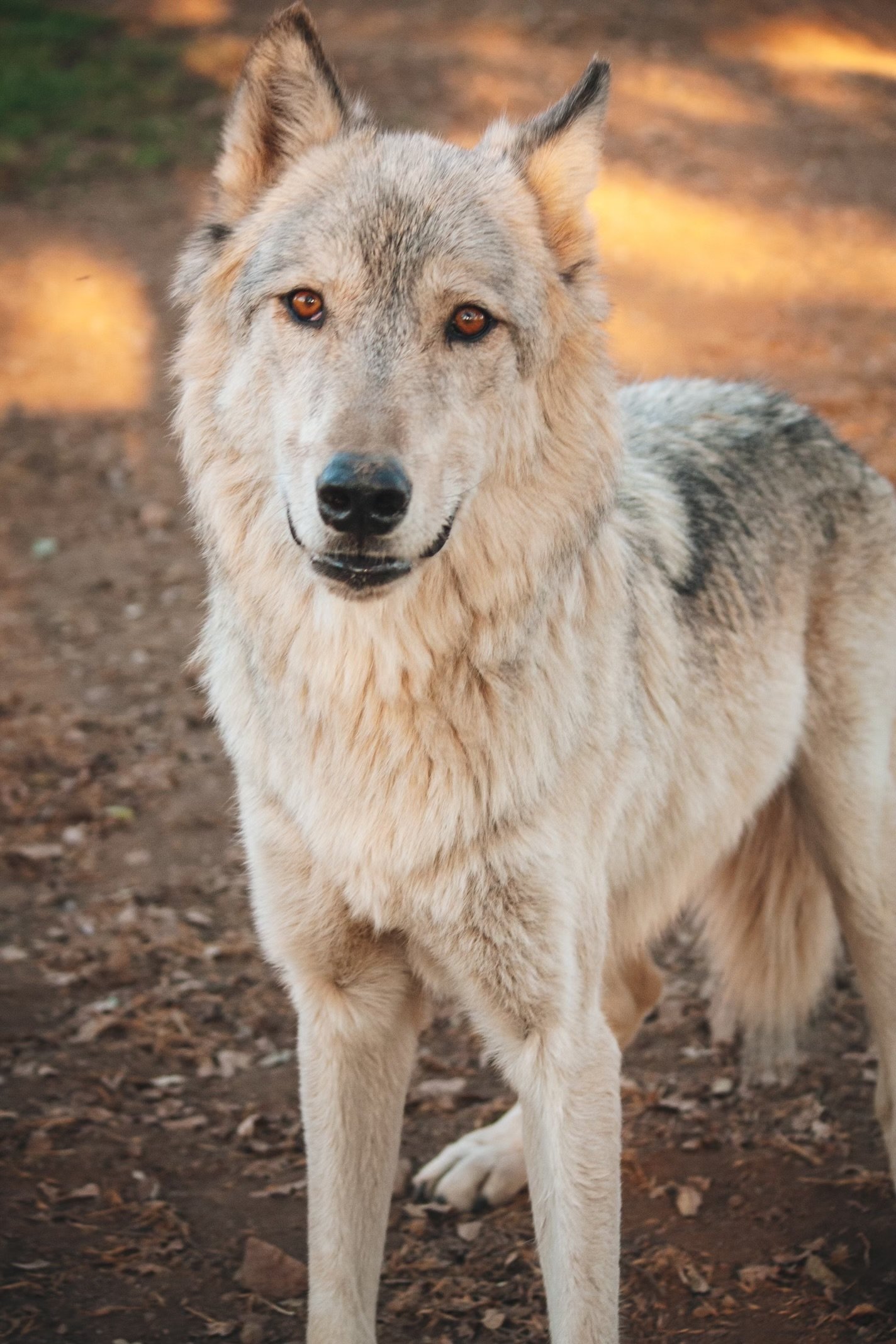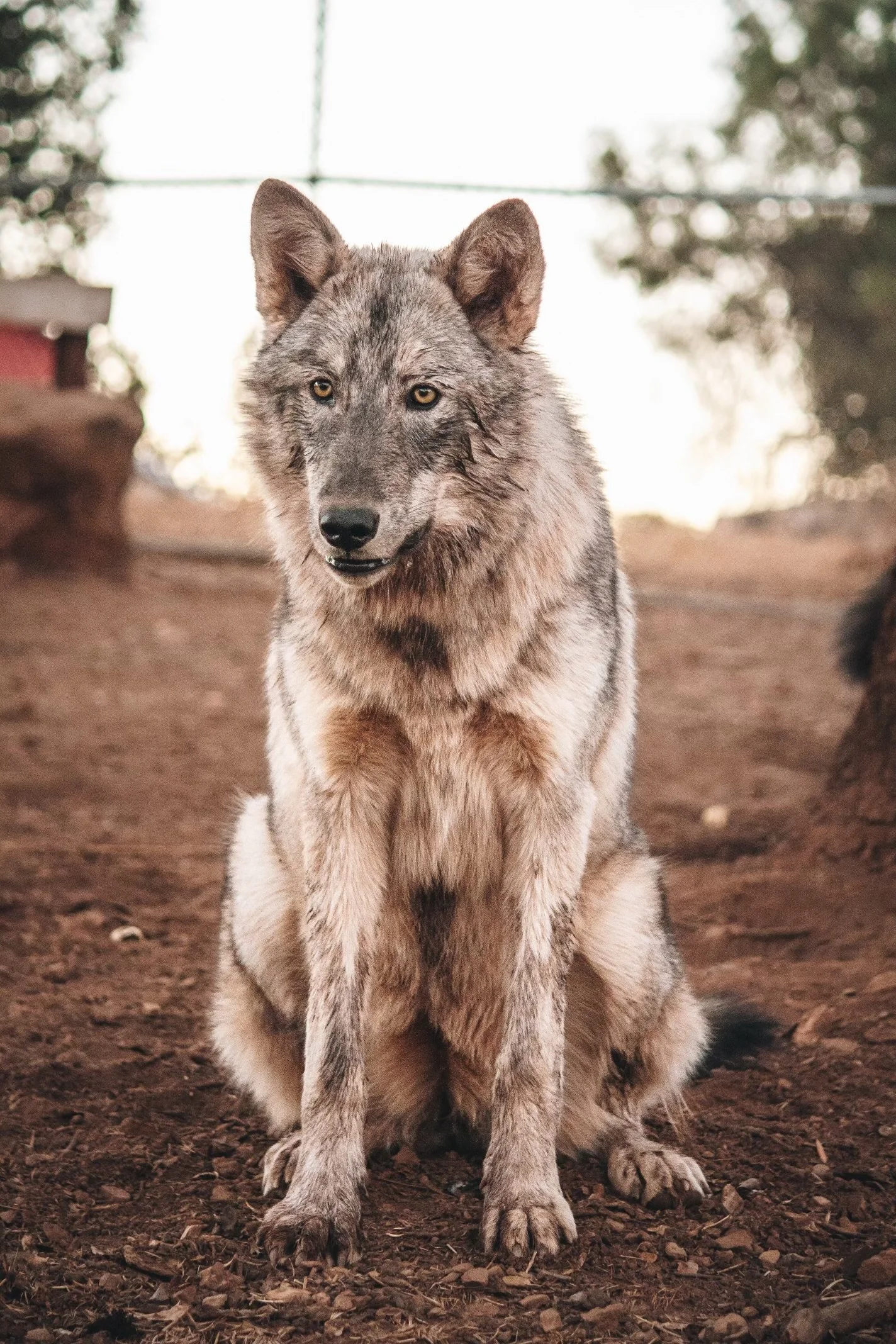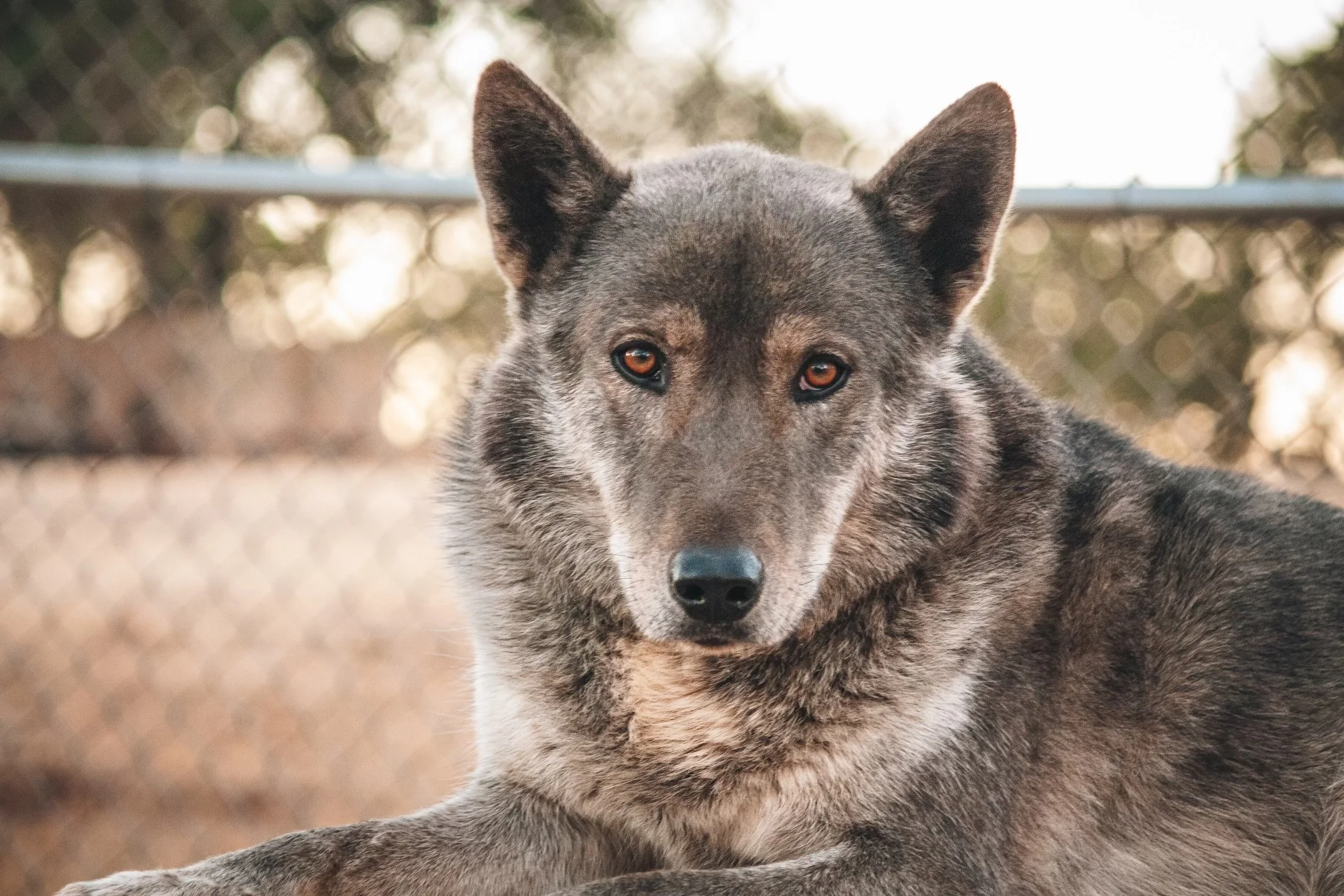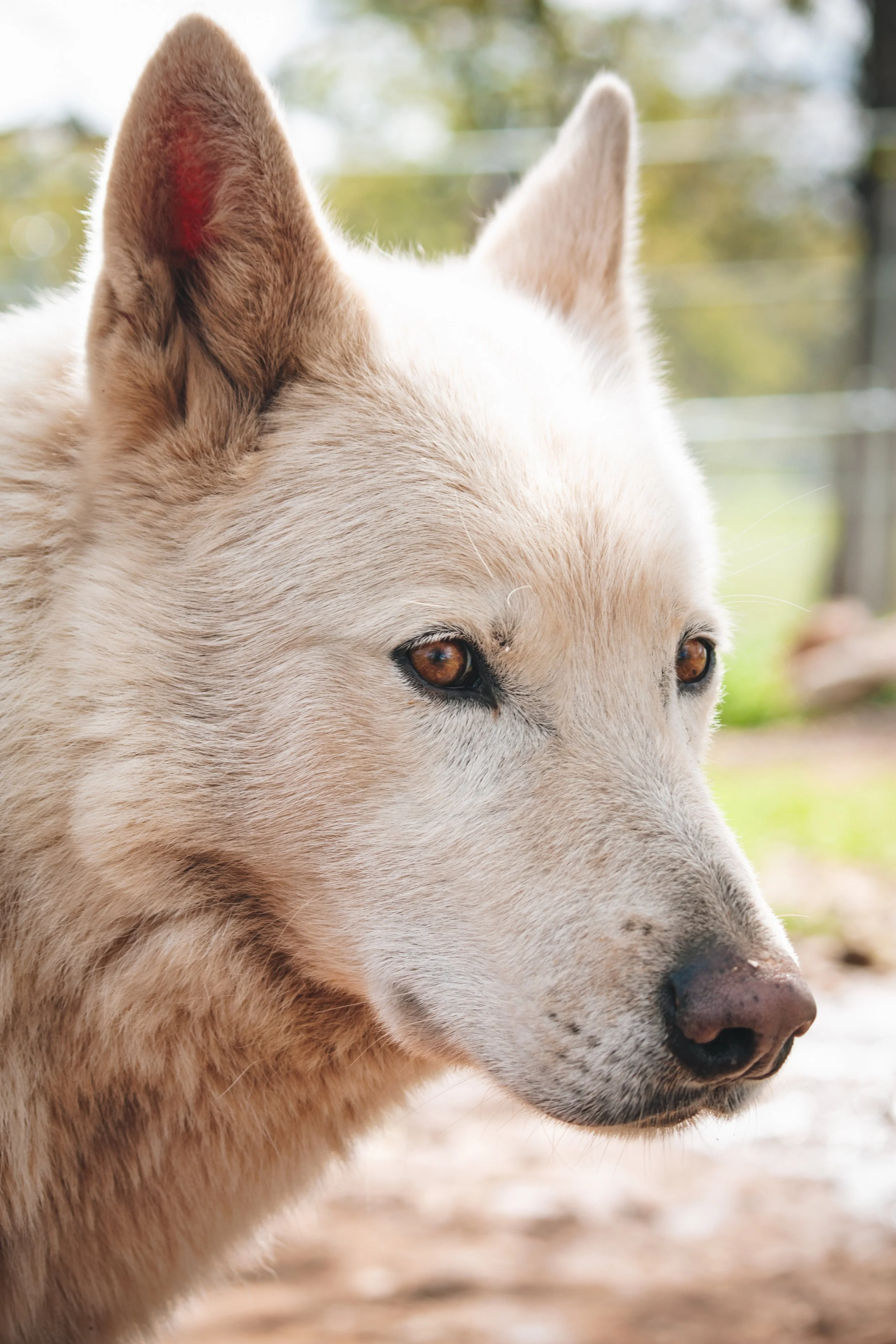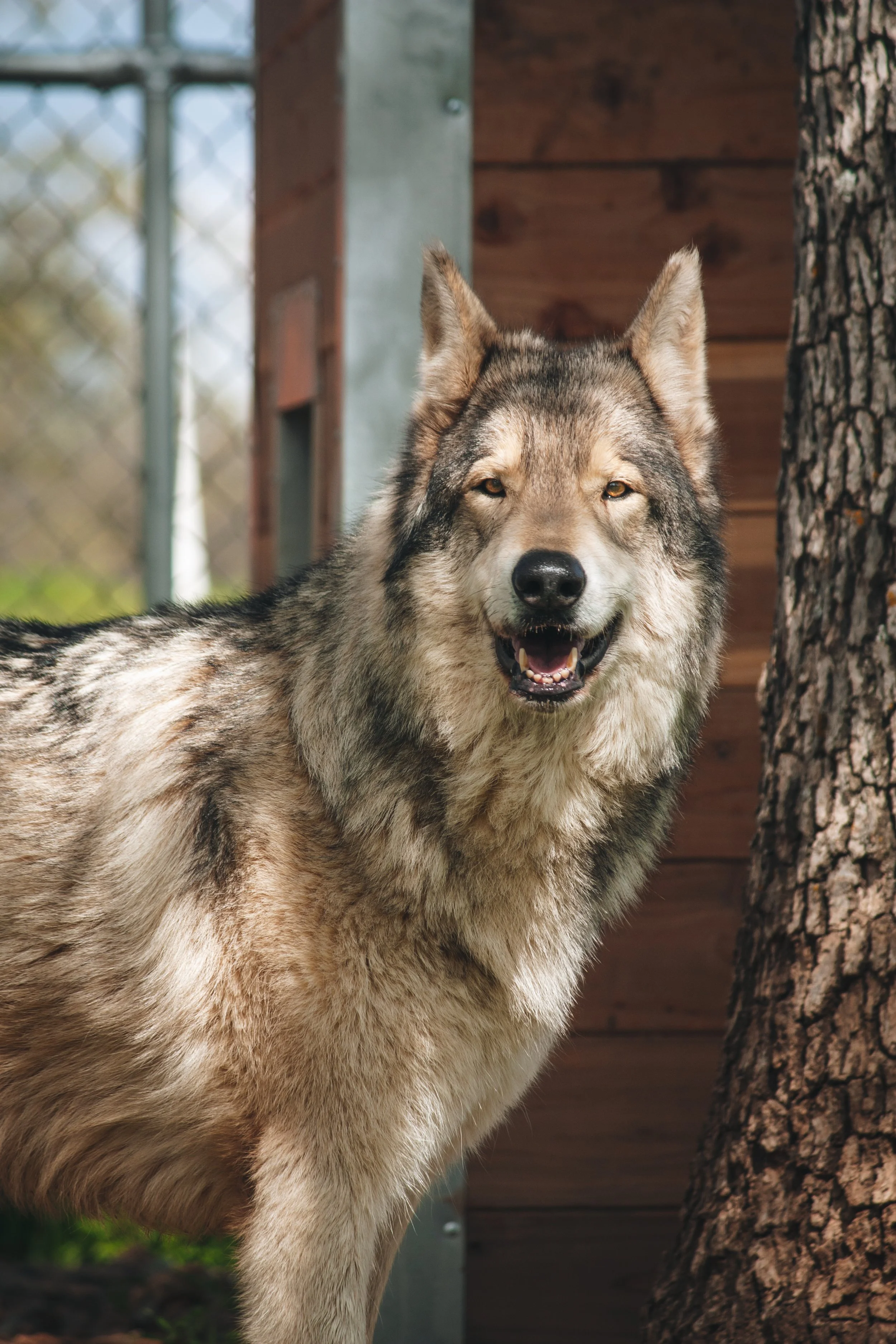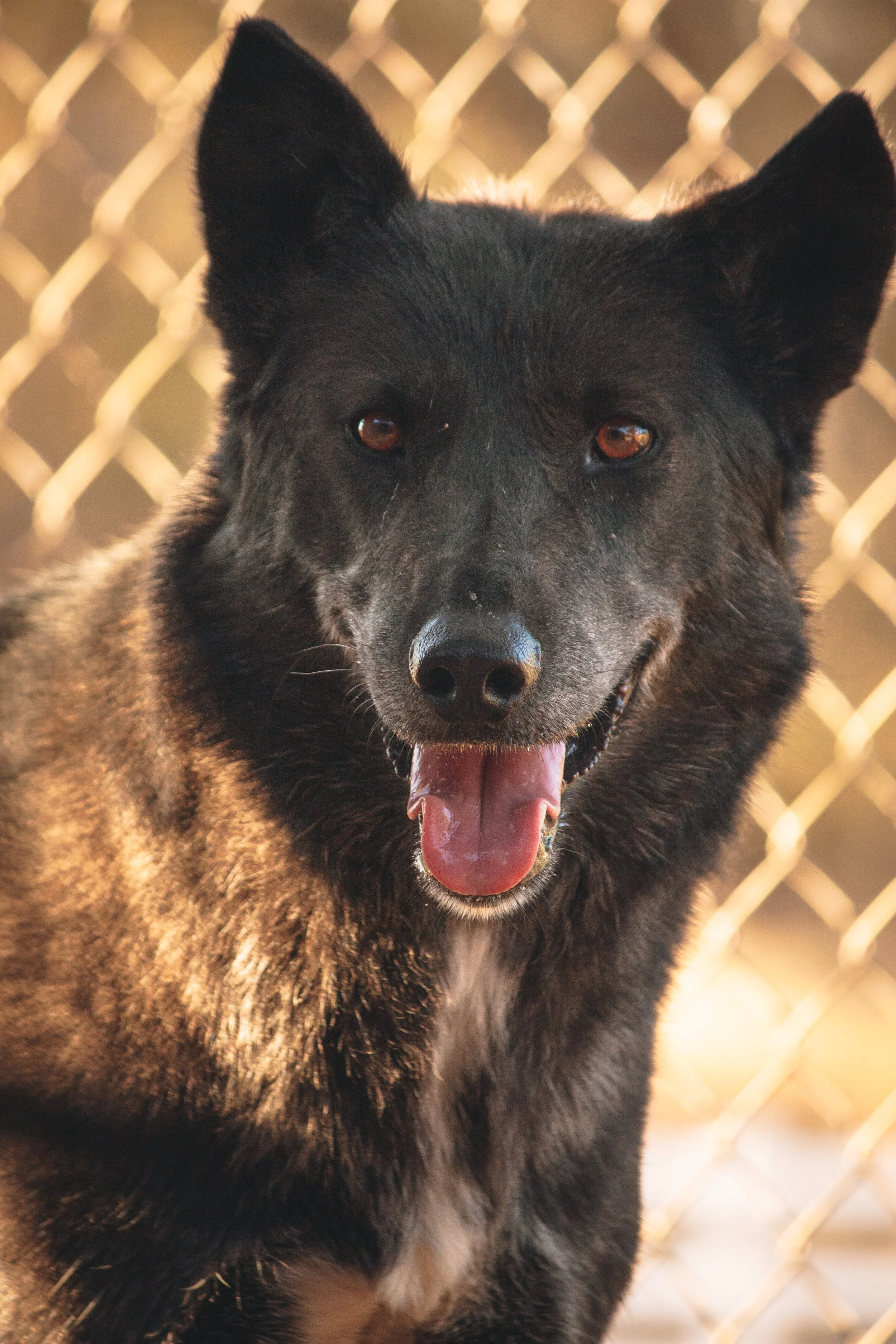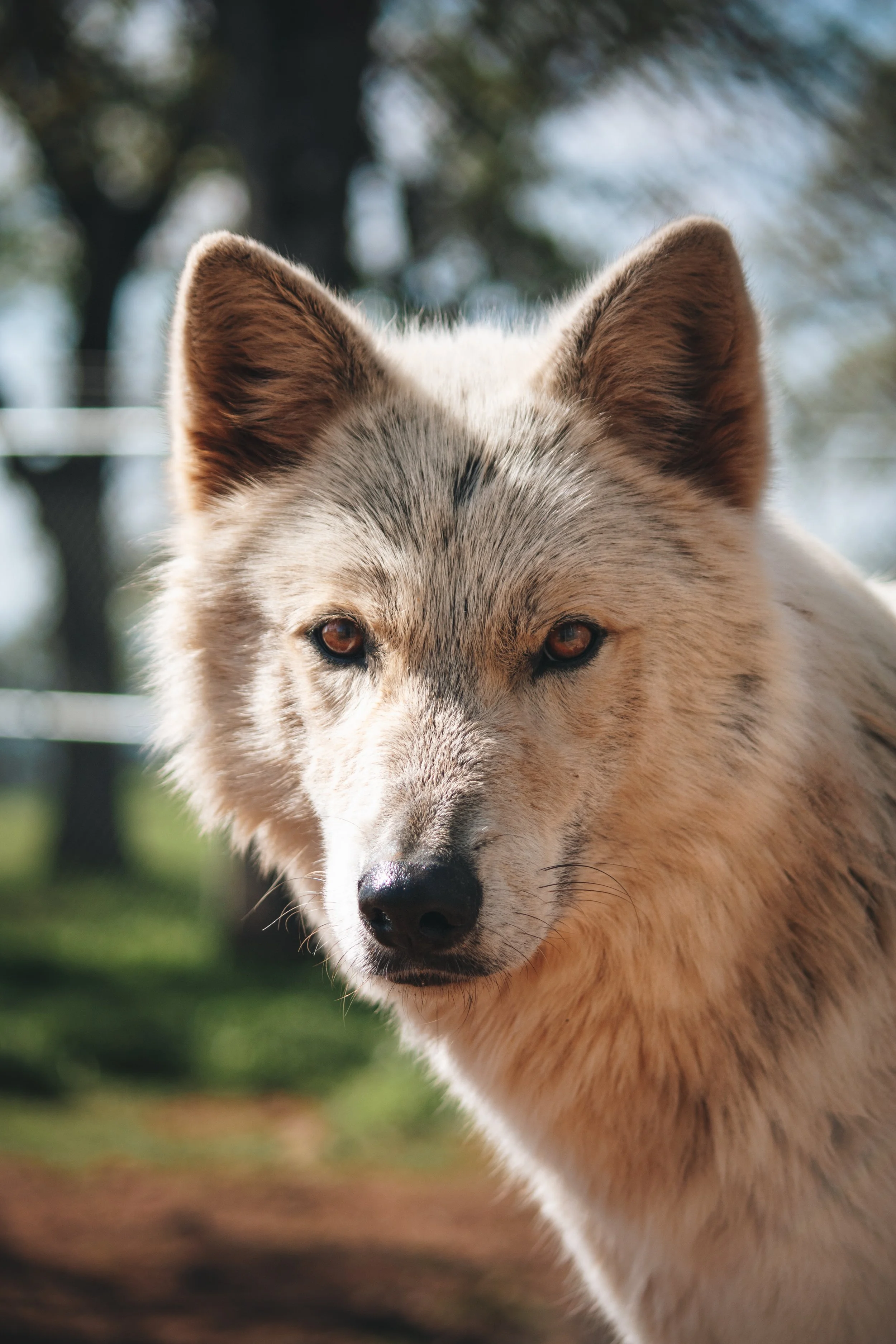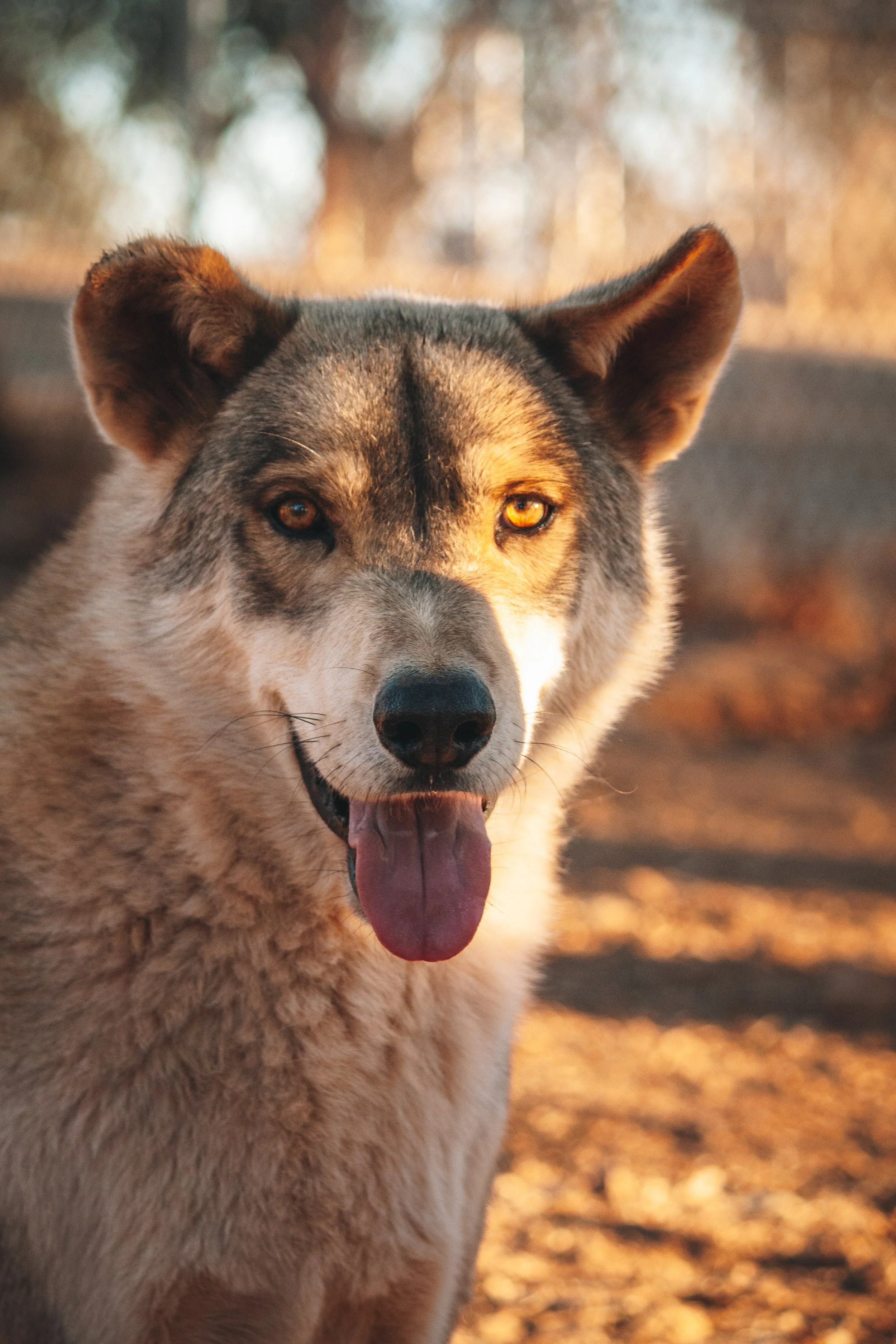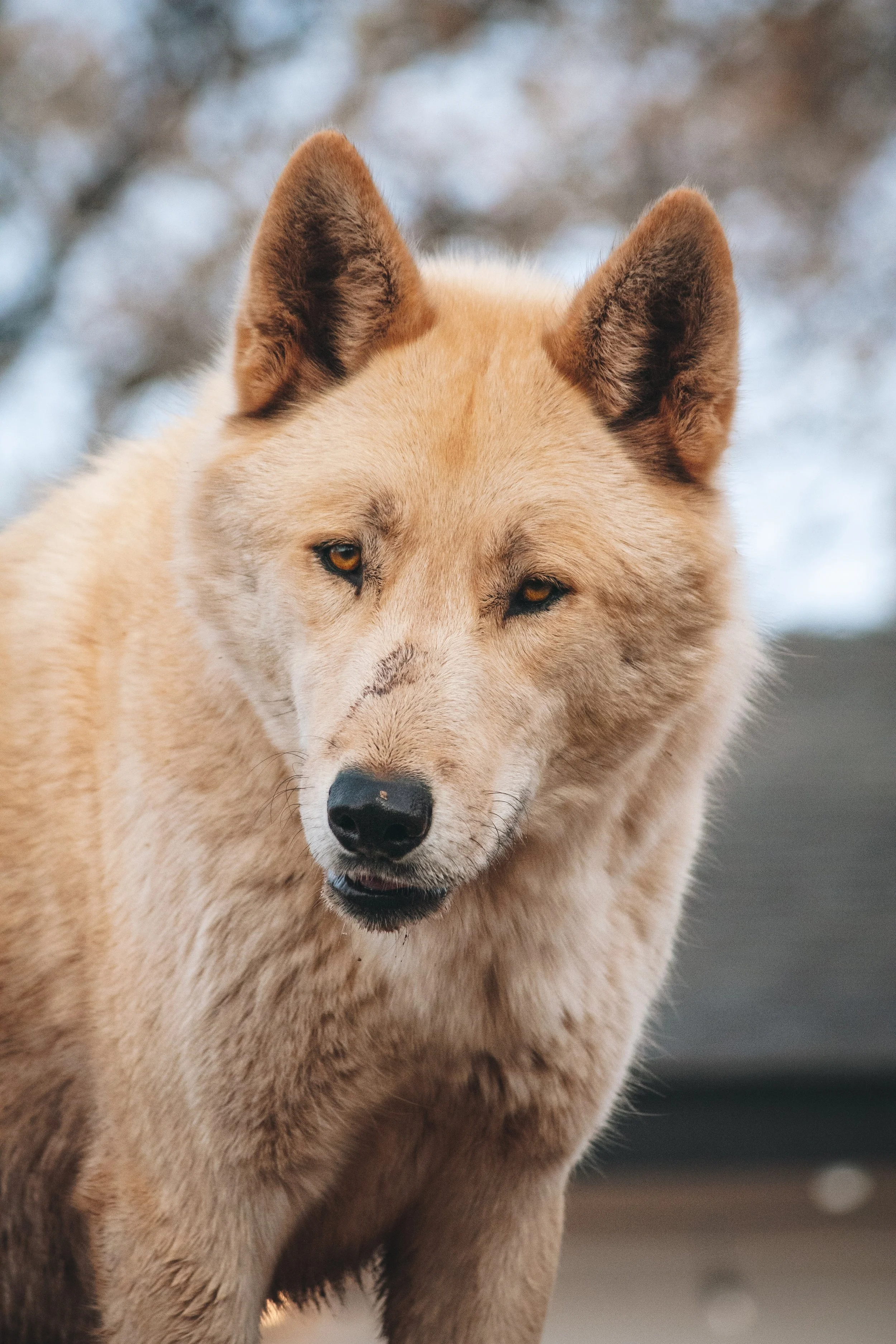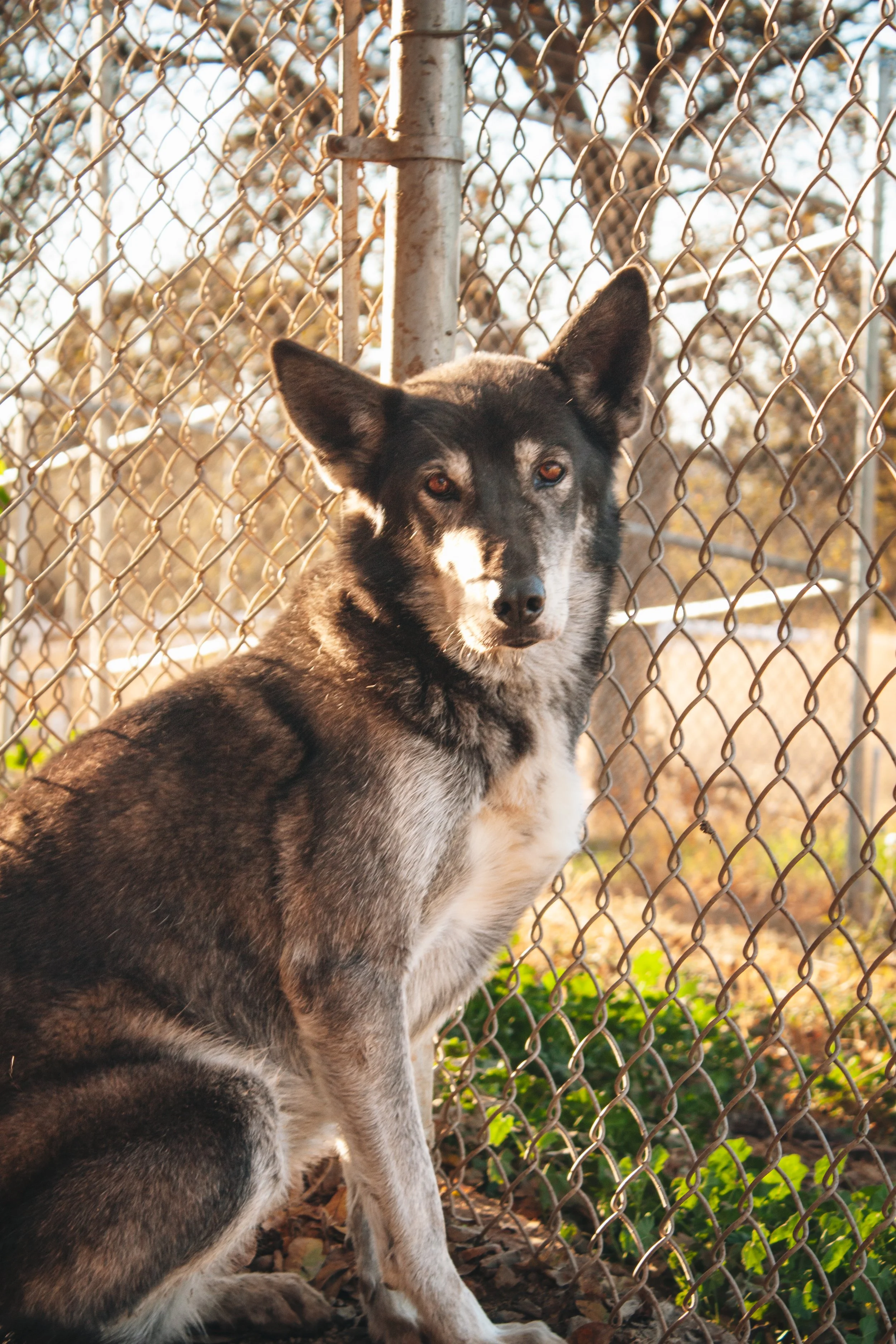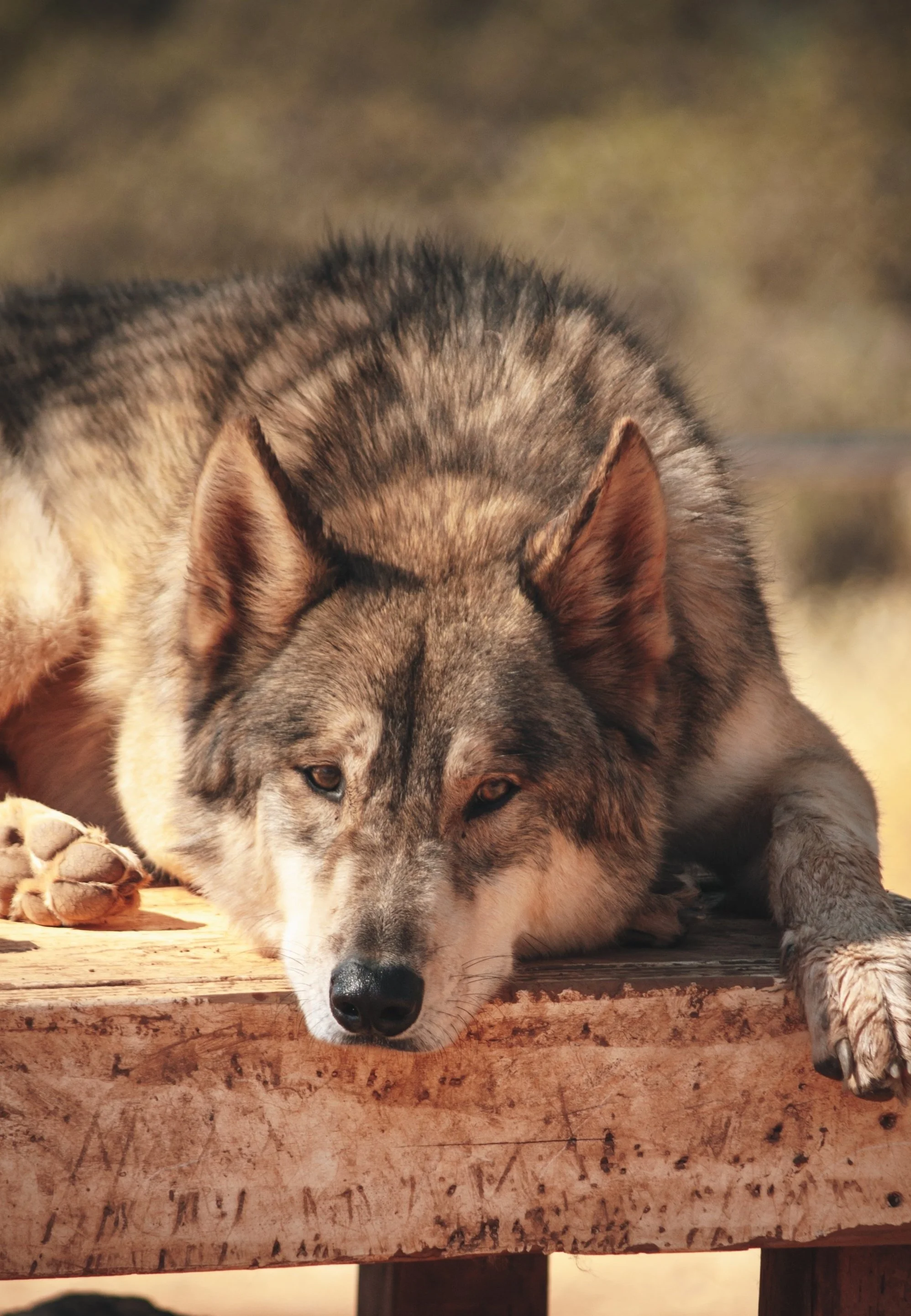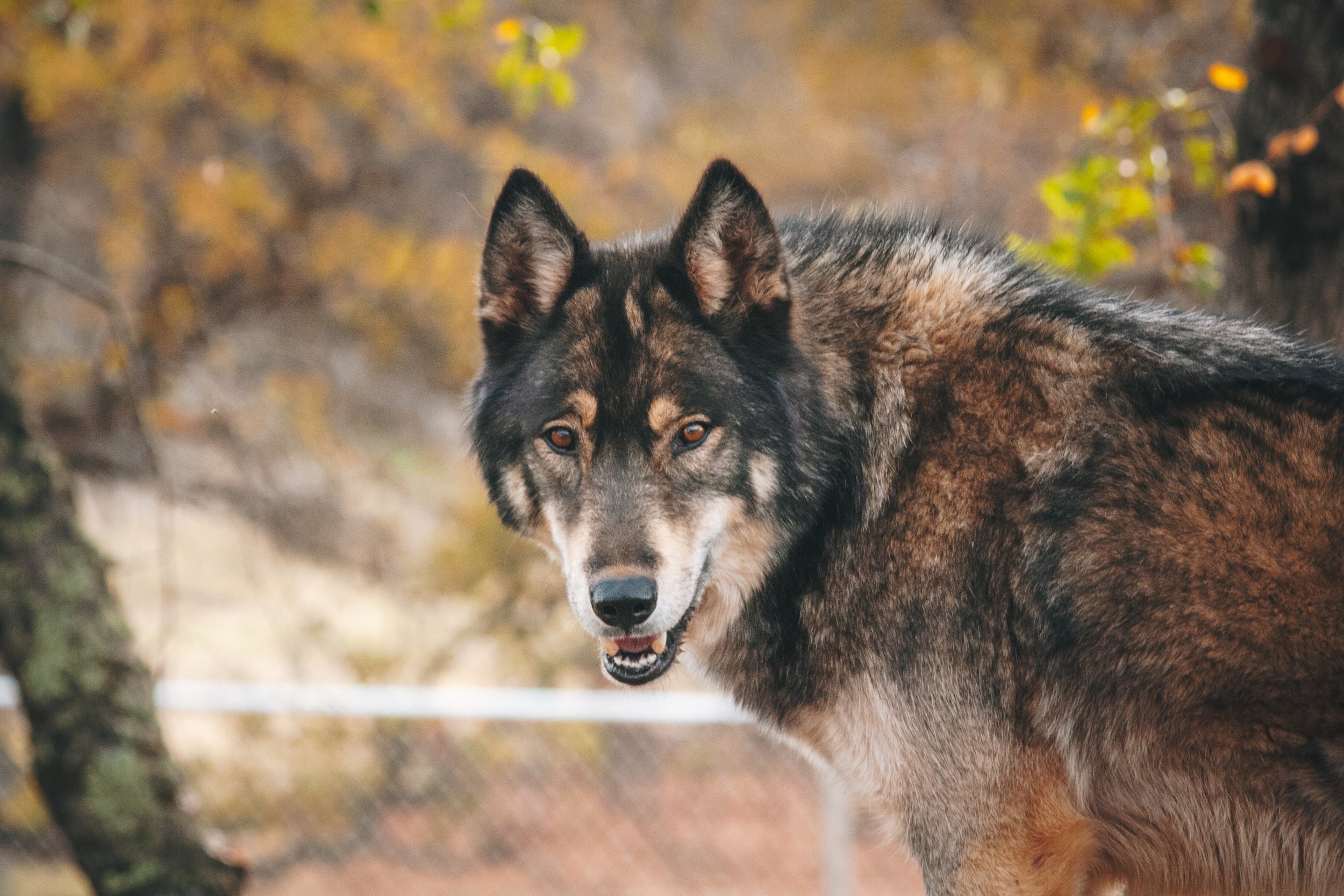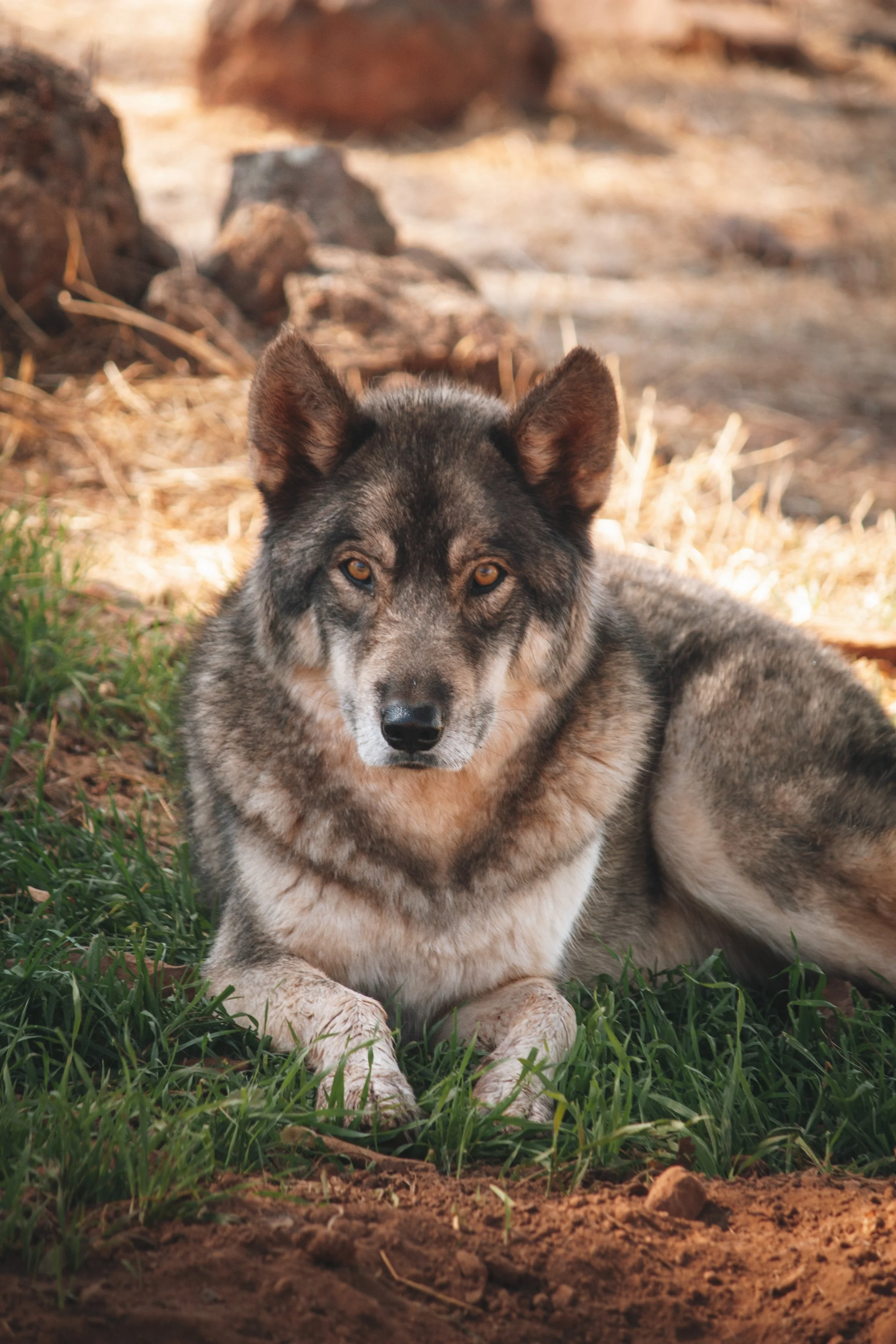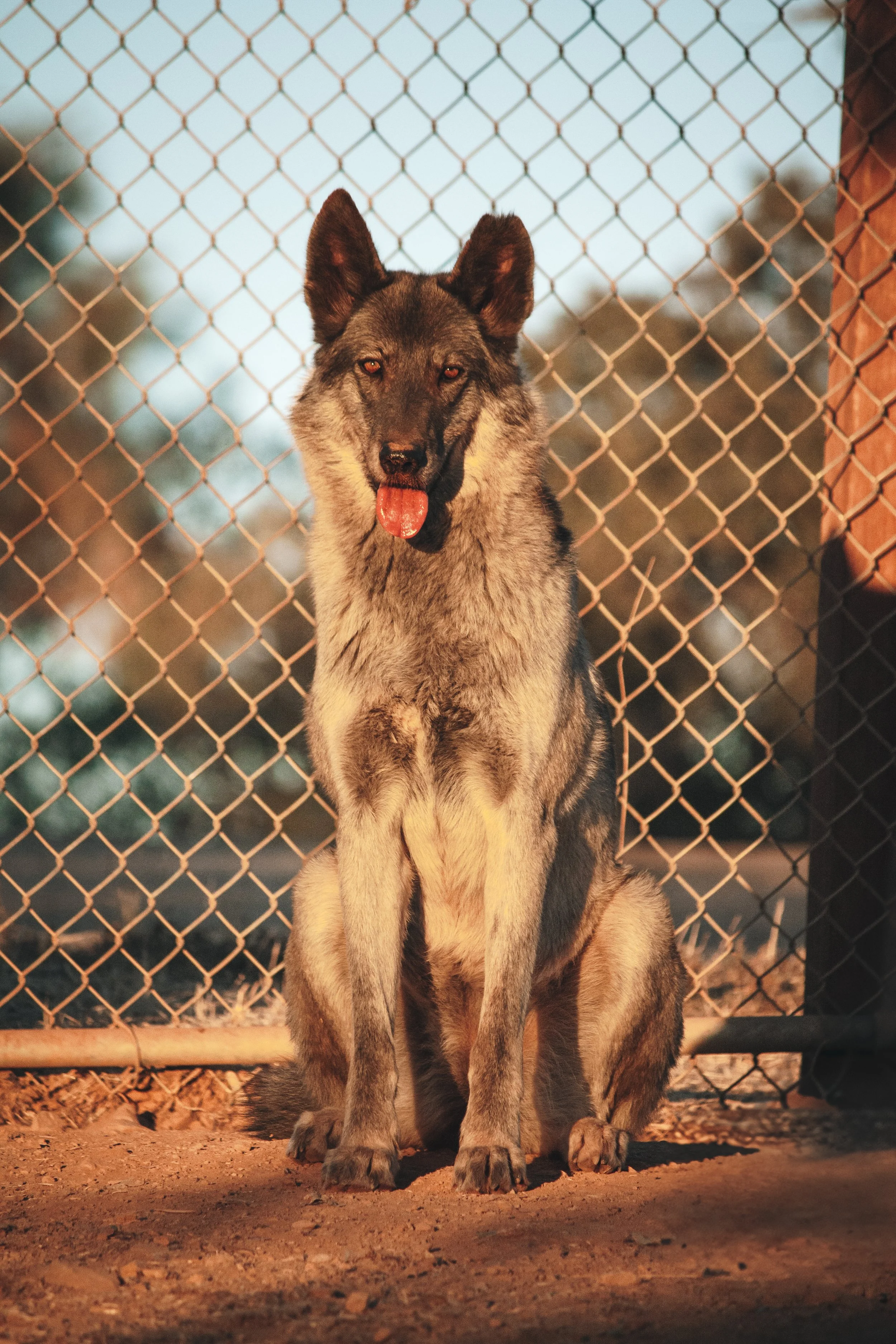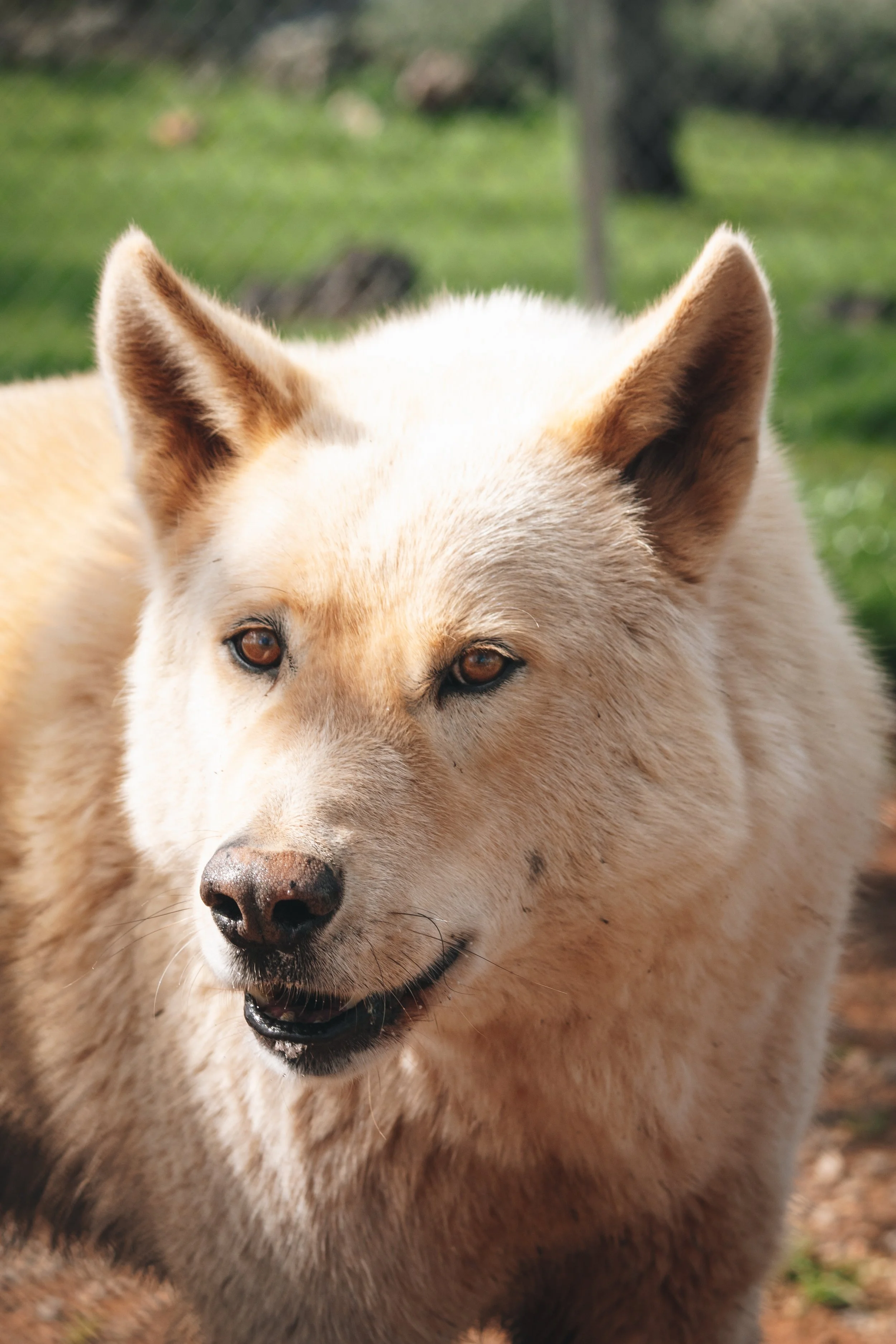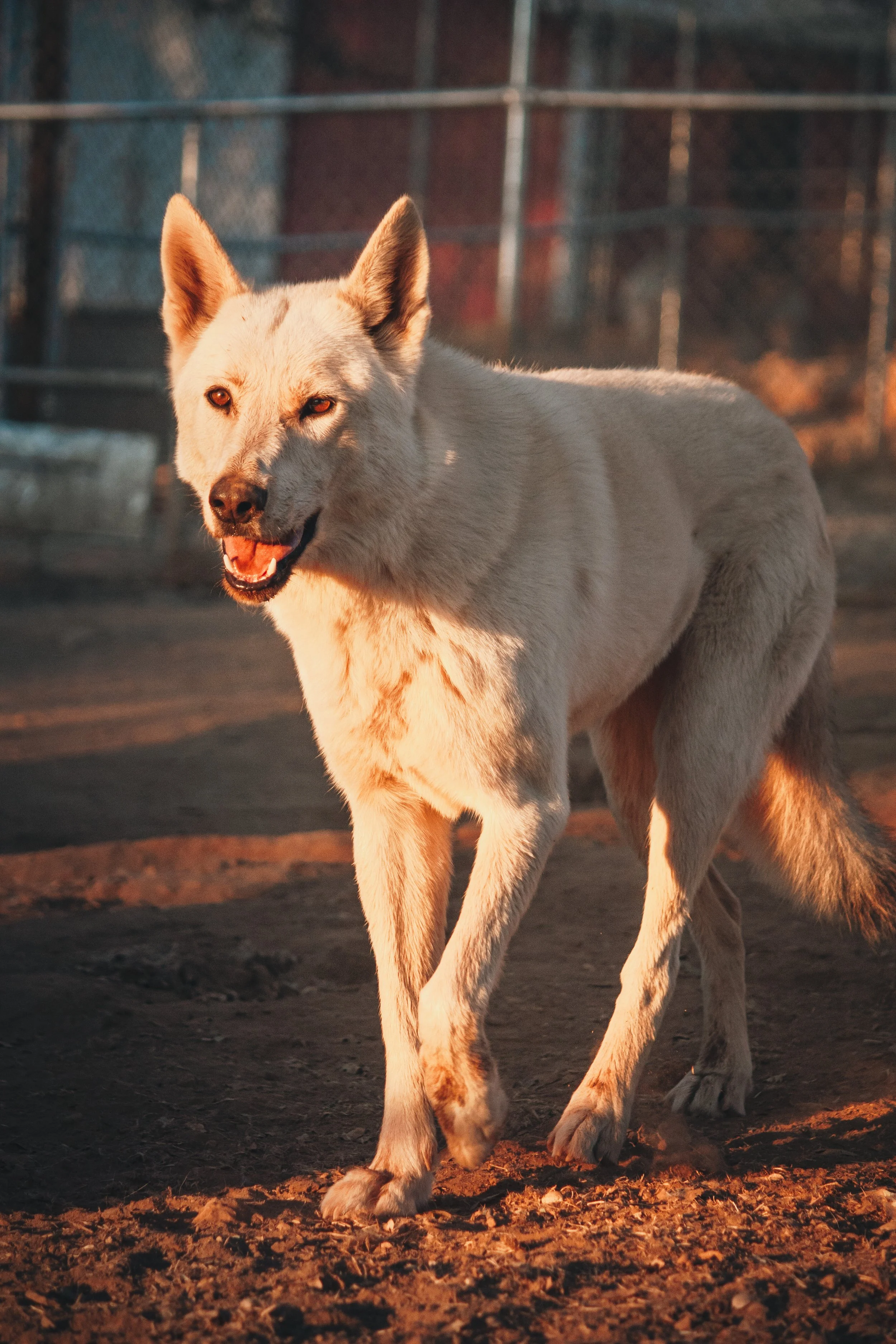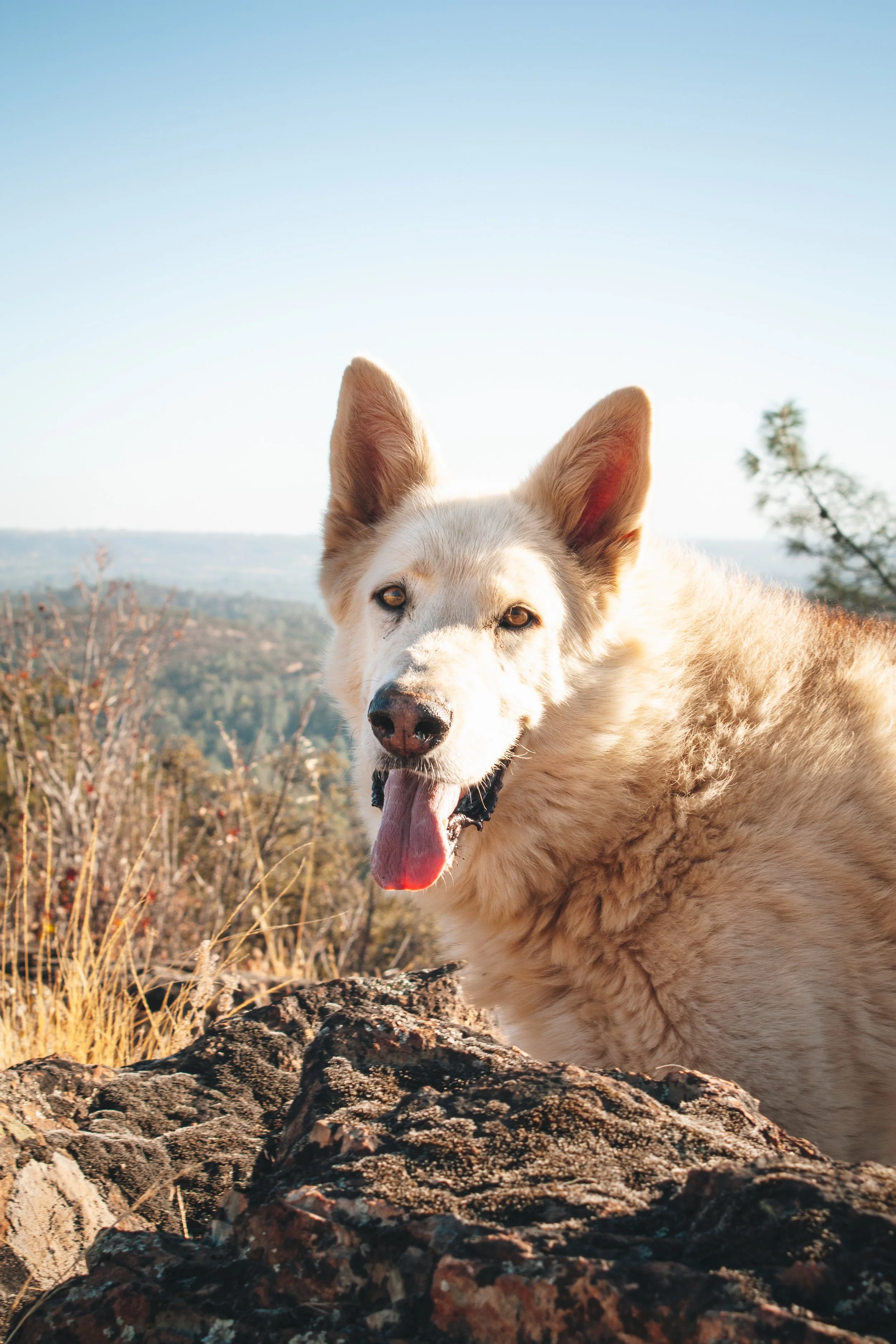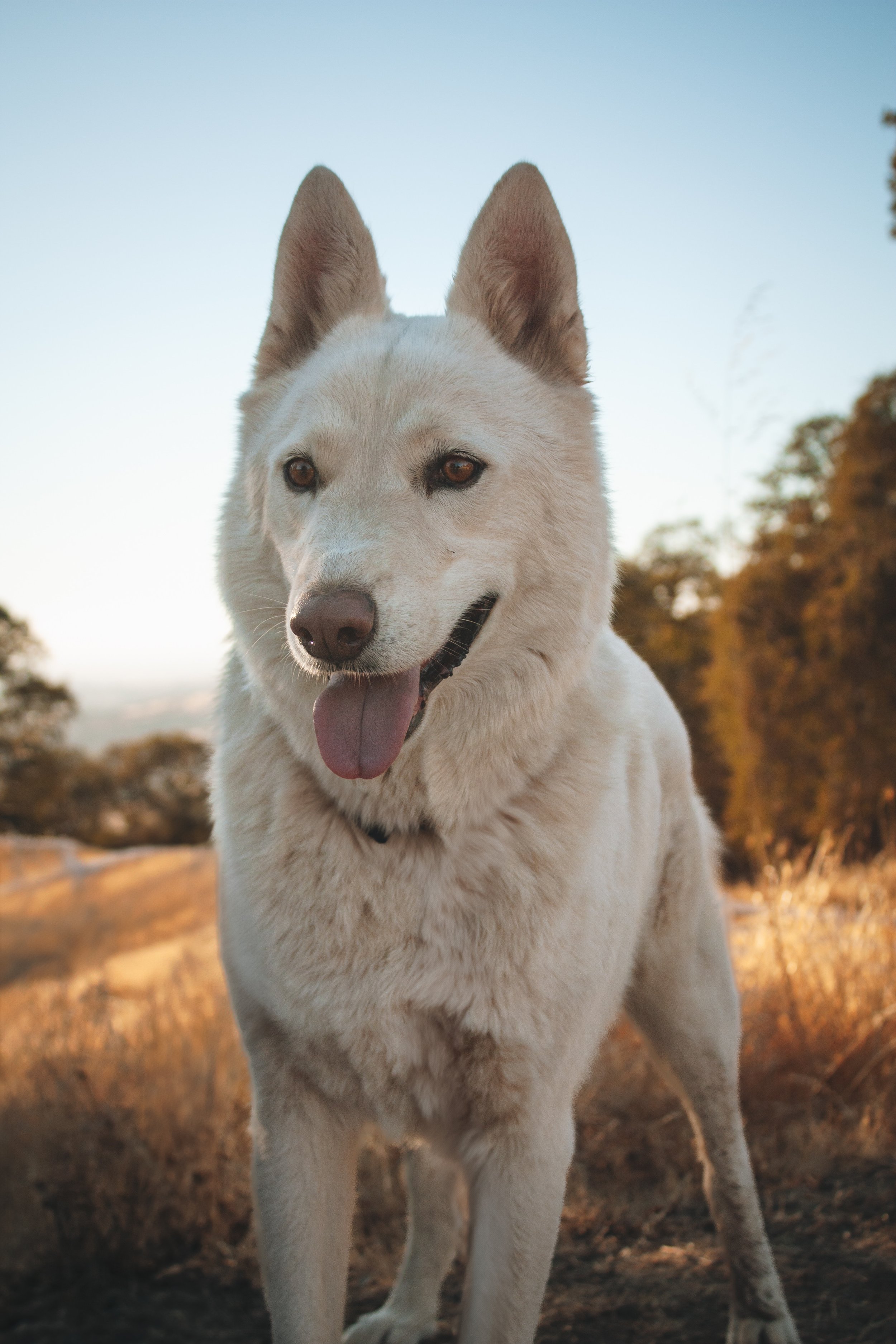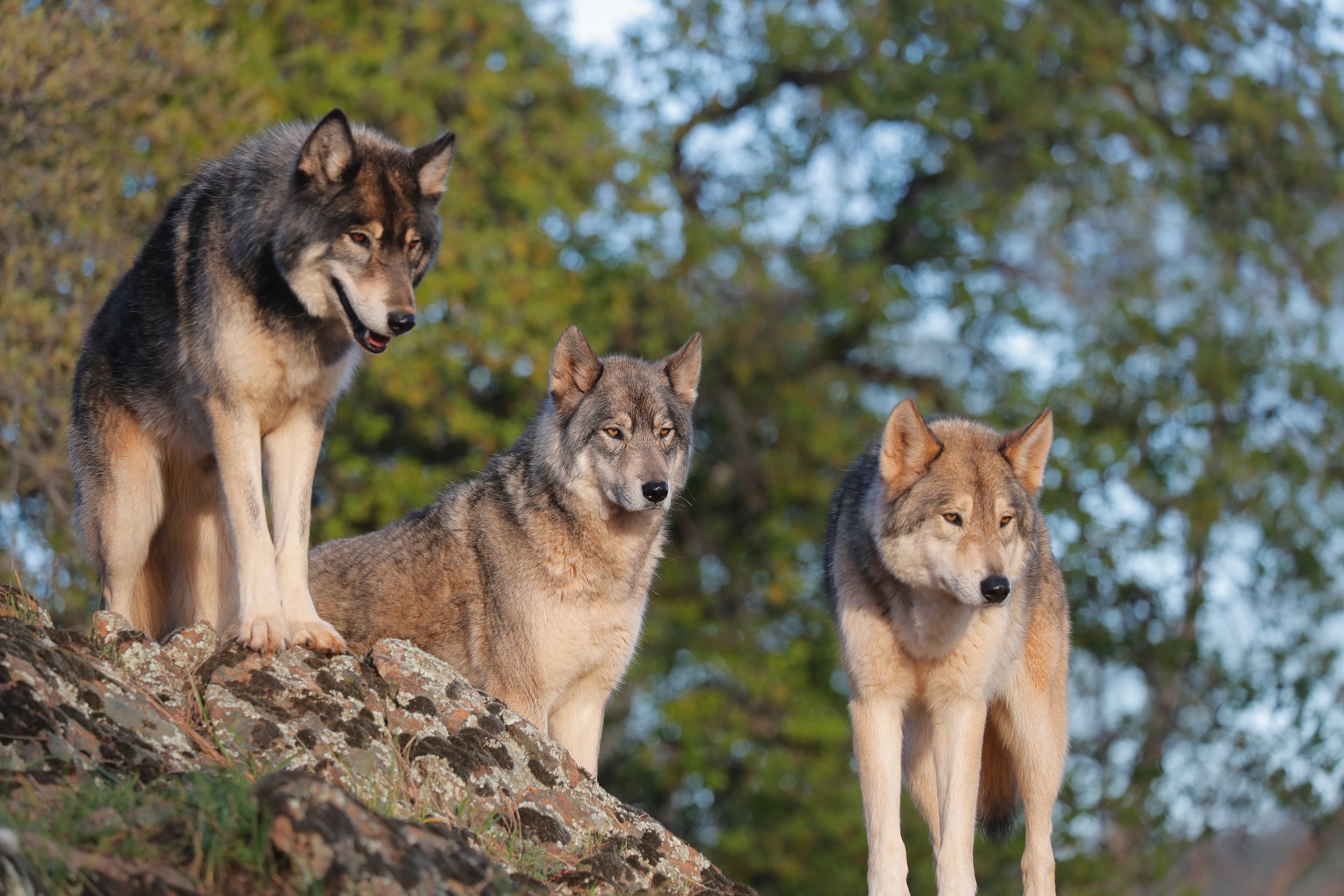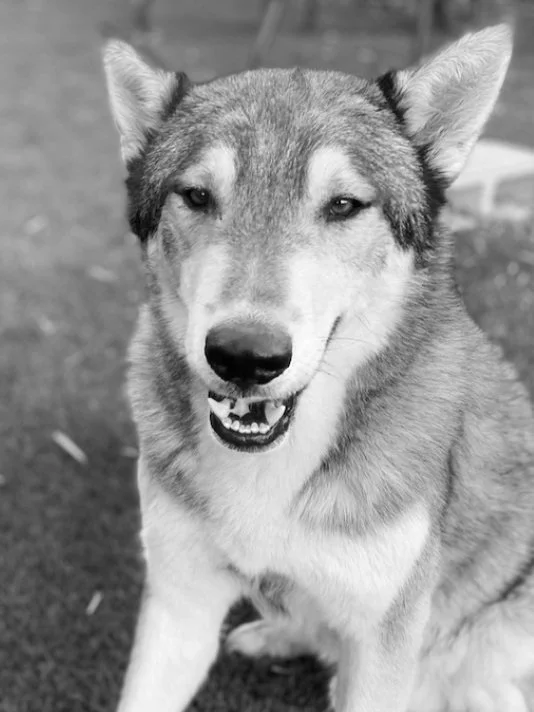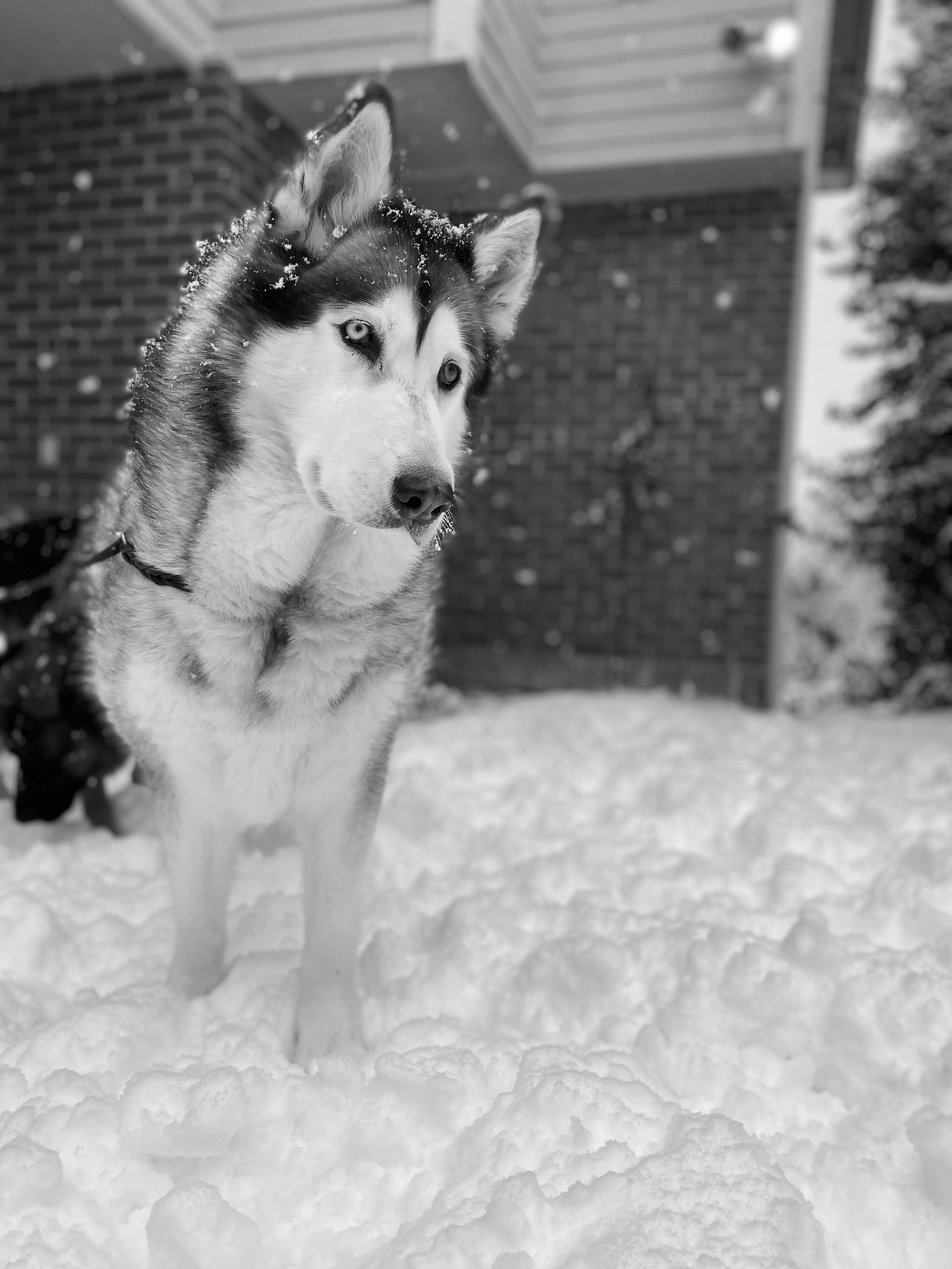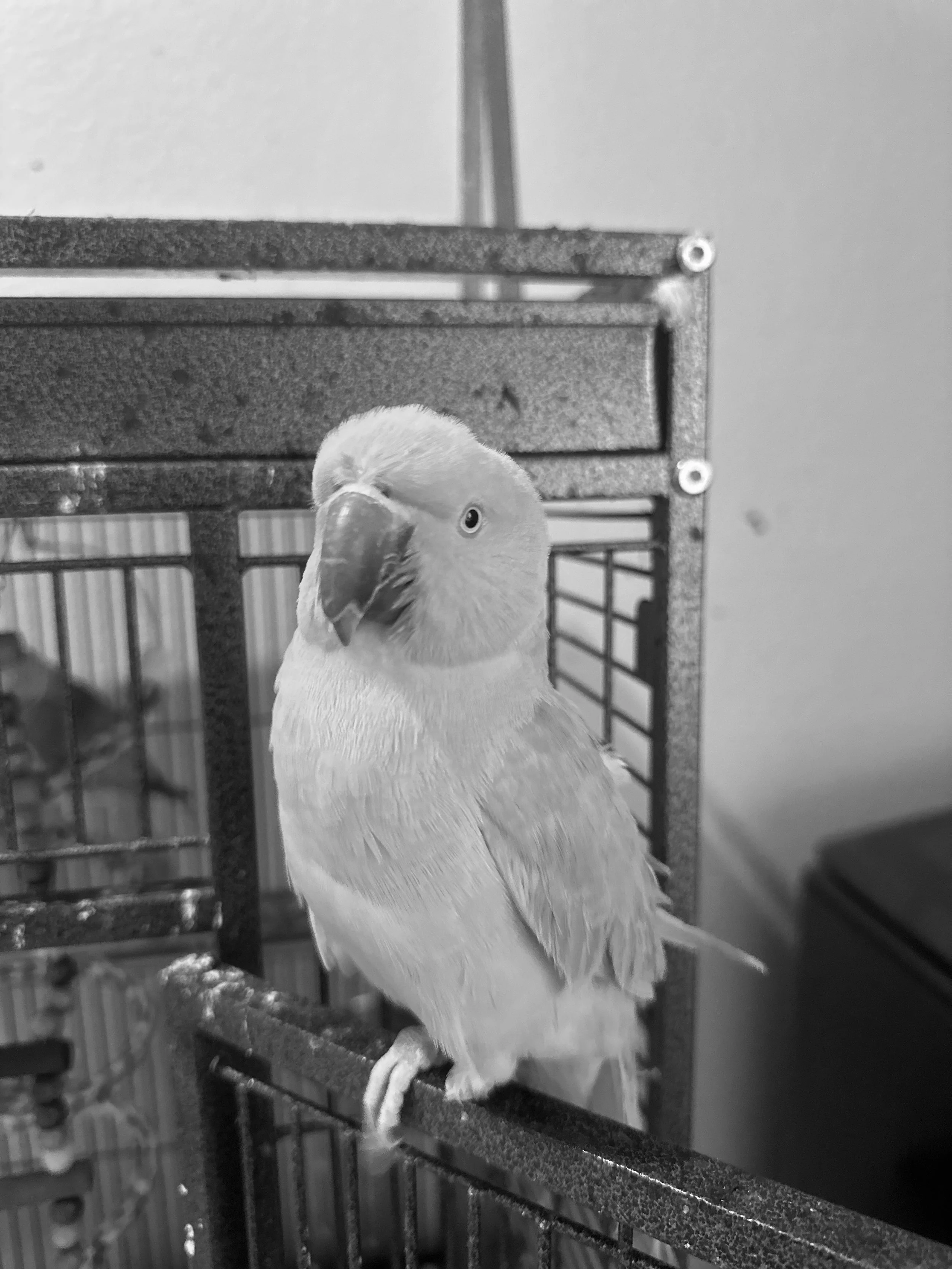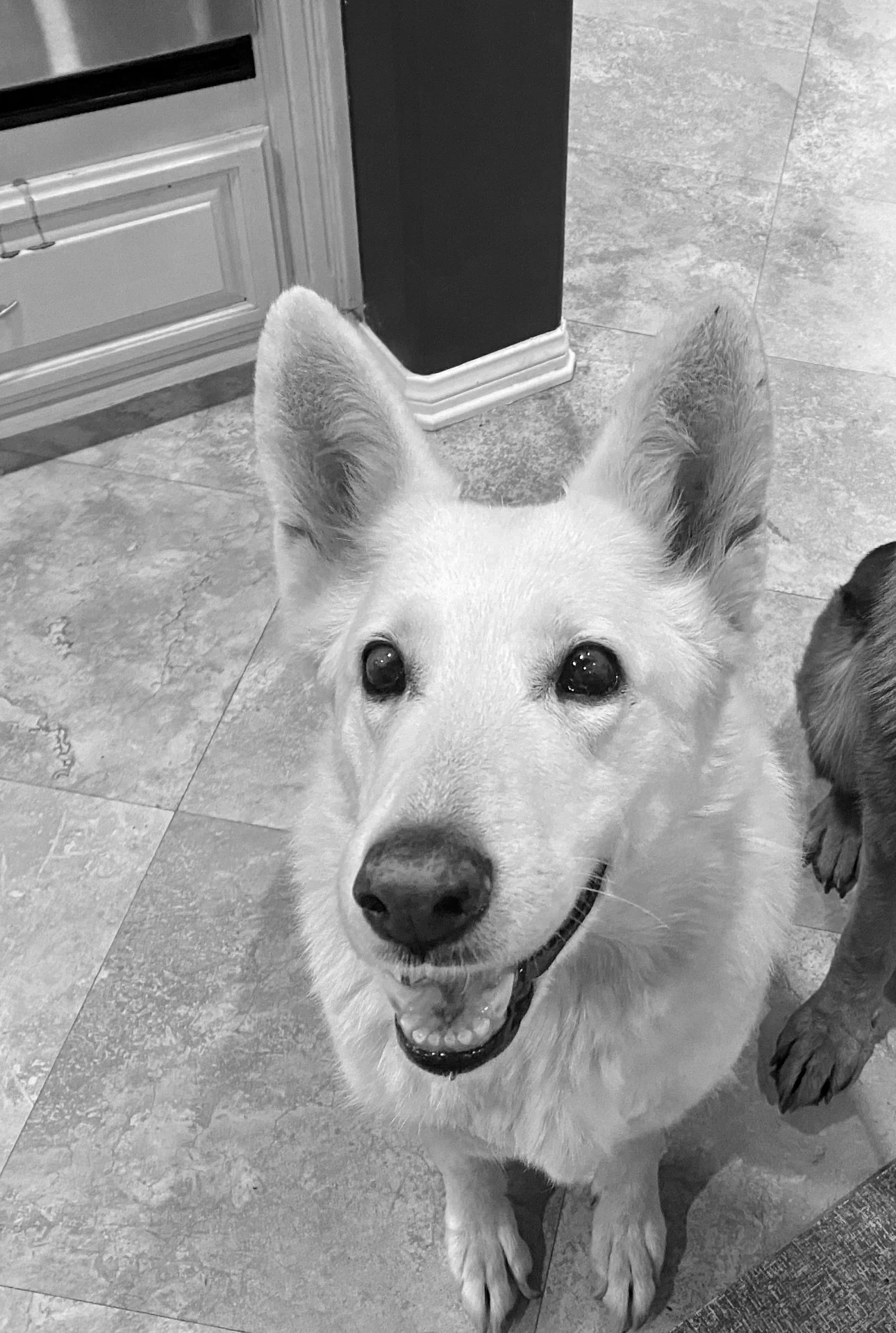
90% of wolf-dogs get euthanized.
Sanctuary Residents
Dogs for Adoption
Over 200 wolf-dogs and animals rescued.
We rescue wolf-dogs facing abuse, abandonment, or euthanasia. We are a trusted resource for shelters or other rescues in placing and providing sanctuary for wolf-dogs.
Some owners also surrender their animals directly. Many situations we see are heartbreaking. With help from our vet team, we stabilize each pup and determine whether sanctuary or adoption is ideal. Scroll FAQs.
FAQs
-
A wolf-dog, also known as a wolf-dog hybrid, is an animal resulting from the breeding of a domestic dog (*Canis lupus familiaris*) with a wolf (*Canis lupus*). Wolf-dogs can result from combinations of a pure wolf with a domestic dog, a wolf bred with a wolf-dog, or two wolf-dogs bred together
-
Our rescued wolf-dogs come from a variety of sources, including shelters, owner surrenders, other rescue organizations, and animal control facilities. More than 50% of our rescues originate from shelters throughout California and across the United States.
-
Absolutely not. We firmly believe that wolf-dog and dog breeding of any kind should be banned. Our organization exclusively promotes rescue efforts, and we do not engage in or support any breeding activities at our facility, as we operate solely as a sanctuary and rescue organization.
-
Yes. We currently have four adoptable dogs: Phantom, Arya, Bash, and King. These animals were surrendered to us under the mistaken belief that they were wolf-dogs. They are looking for suitable, loving, and qualified homes.
-
Unfortunately, wolf-dogs experience abandonment at an alarmingly high rate. Estimates suggest there are currently between 250,000 and 500,000 wolf-dogs living in captivity across the U.S. Many are abandoned or euthanized due to the inability of their owners to manage their specialized needs.
-
We actively work through our extensive network to place abandoned wolves, wolf-dogs, and dogs into sanctuaries, rescue organizations, or suitable and qualified homes. Each month, we successfully find homes for at least 2-5 animals, making a meaningful contribution toward alleviating the shelter crisis.
-
Captive wolves and wolf-dogs are not suitable candidates for release into the wild. Animals raised in captivity lack the essential survival skills, fear of humans, and behaviors necessary to thrive independently. Additionally, releasing wolf-dogs, who carry domestic dog genetics, into wild ecosystems can disrupt natural wildlife populations and compromise conservation efforts. At WFW, our goal is to provide lifelong sanctuary, proper care, and responsible placement into suitable homes or sanctuaries rather than releasing these animals into environments where they cannot succeed.
In Loving Memory

